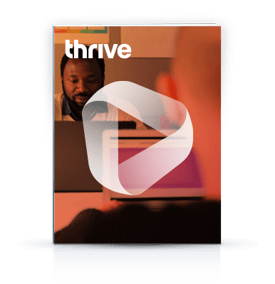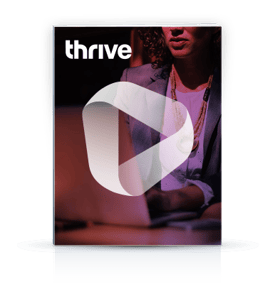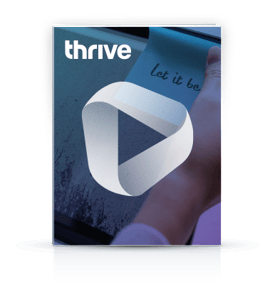Digital Age Leadership Essentials
by Maureen Ennis
by Maureen Ennis
Leading with Emotional Intelligence
by Maureen Ennis
Stop Drifting - Three Steps to Take Now to Navigate Your Business Through Turbulent Times
Posted by Maureen Ennis
Jan 17, 2010 7:35:00 AM
Topics: business owner, plan, Leadership, SWOT, Vision
One of the most important responsibilities for business leaders is giving employees the feedback they need so that they can develop, and having a practice of continuously making well grounded assessments of your employees so that you are leveraging your most precious resource: your employees and their potential.
Topics: HR, business owner, business leader, managing, transformation
To be successful in today's market and build competitive advantage for the future, business leaders need to leverage every asset they have. This means business leaders must be aware of their own strengths, capabilities and passions, as well as the strengths and capabilities of their employees. Once you are aware of these assets, successful business leaders arrange the roles and responsibilities of the organization to make the most of them.
Topics: change, business owner, plan, business leader
Why Learning is a Team Sport, and What You Need to do to Win
Posted by Maureen Ennis
Sep 5, 2009 5:16:00 PM
Smart, effective leaders share a common trait: the desire and ability to learn new things. To be successful in the future, and build organizations that are able to respond to continuous change, learning is a performance essential.
Business leaders need to be able to quickly learn new concepts, adopt them, and put them into practice within their organization. They also must ensure their employees are always learning.
Learning is a team sport, and winning means using the knowledge you and your team accumulate to gain competitive advantage, build a sustainable organization and achieve your vision. Here are three reasons why:
1. Effective learning requires reciprocity - interaction with others.
Every so often I meet a business owner who tells me that they don't need a peer advisory board because they read books. Now don't get me wrong... I love books, and blogs and all sorts of other content that I can get my hands on. But reading books on your own, pales in comparison to the effectiveness of reading something and then having an interactive conversation with peers to delve more deeply into the subject, how it might be relevant to your situation, and what action you can take. The act of interacting with others is called reciprocity and is a fundamental of learning. It is part of our biology since we are inherently social beings.
I am a big fan of online universities. One of the reasons they are effective is because interaction is built into the design of the course. Meetings with study groups, 1-1 conversations with peers and other similar techniques are very effective for learning. Even though the interaction is virtual, it can be more effective than the stale semi-comatose interaction we have all experienced of sitting in a room with a talking head, and not participating at all.
Online learning can be economical and effective. Just make sure your team has an opportunity to interact and continue conversations about what they've learned after watching the information. I work with teams who have unbelievable access to online content, but no one takes advantage of the courses. Make it a team event: set a time, buy pizza, watch it together, and stimulate some conversation afterward. The rewards will be tenfold.
2. Effective learning requires commitment, discipline and a game plan.
Learning is not a casual pursuit. There is a cost for learning, even if the content is free. Effective learning requires a conscious commitment to use time and resources to gain new capacities. Much like the need to practice before a game, you need to learn before you need to use the knowledge. That means you always need to be thinking ahead about the new practices and capacities you will need in the future. Then you need the discipline to devote time to the learning, even when a dozen urgent things are pulling at you.
3. Until you can put what you learned into action, you have not learned it sufficiently.
Effective learning is defined by gaining a new capacity to do something. In business, the new capacity must be relevant. Just understanding something doesn't cut it....reading about golf or Tiger Woods does not mean you can golf. Understanding is an important but preliminary step on the path to gaining new capacity. Practicing the new behavior, process or practice is essential for learning. Again, this requires others: colleagues, customers, coaches, mentors etc.
Topics: collaboration, change, HR, business owner, plan, agility, business leader, learning, performance
On my Sunday bike ride along the boardwalk this morning, I ran into an exceptional array of religious diversity. Some Jewish people out for a stroll in Bradley Beach, an open air Methodist service on the boardwalk in Ocean Grove, some people wearing all white returning from the sea where one of them had just been baptized. In Asbury Park I came across an older gentleman wearing an "I Love Jesus" baseball cap and a Mennonite family on the playground. I have had that experience before on Sunday mornings on the boardwalk stretch from Belmar to Asbury Park, and it always makes me appreciate the diverse area I live in. The ocean calls people of all faiths to the boardwalk for reflection, celebration and community.
Topics: HR, business owner, plan, agility, business leader, diversity
Thrive Insights delivered straight to your inbox
Recent Posts
Posts by Topic
- Leadership (10)
- change (10)
- business leader (9)
- agility (6)
- plan (6)
- HR (5)
- business owner (5)
- collaboration (5)
- employee engagement (4)
- working out loud (4)
- change through technology (3)
- development (3)
- interview (3)
- managing (3)
- transformation (3)
- Vision (2)
- WOL (2)
- communications (2)
- learning (2)
- manager development (2)
- performance improvement (2)
- technology (2)
- tools and technology (2)
- transition (2)
- #collabcatalyst (1)
- EEOC (1)
- Four Ps (1)
- Predictive analytics (1)
- Productivity (1)
- SWOT (1)
- Stress (1)
- culture (1)
- digital literacy (1)
- diversity (1)
- hiring (1)
- meetings (1)
- part (1)
- performance (1)
- phone screen (1)
- picture (1)
- play (1)
- process improvement (1)
- purpose (1)
- security (1)
- social business (1)
- strategy (1)
- sustainability (1)






